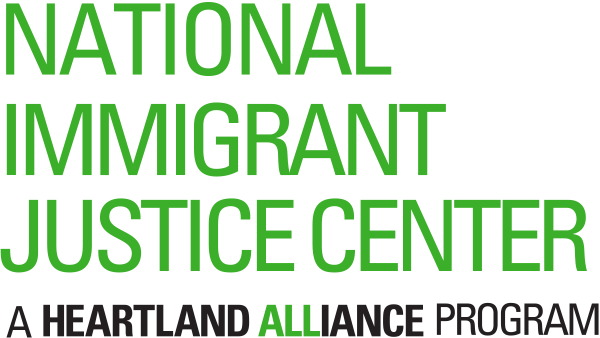CHICAGO – The National Immigrant Justice Center (NIJC) filed a friend-of-the-court brief today with U.S. Attorney General Jeff Sessions, challenging his recent efforts to unilaterally reevaluate a settled immigration court case, which could have implications for a broad range of asylum seekers.
The case at issue, known as Matter of A-B-, involves a domestic violence survivor who fled to the United States after she was unable to obtain protection in her own country. Although the Board of Immigration Appeals (BIA) had granted asylum to the woman, identified only as A-B-, Attorney General Jeff Sessions certified the case to himself for consideration of broader issues impacting a wide range of asylum claims. Such power is authorized to the attorney general but has seldom been used in recent decades. Attorneys general typically defer to the BIA and the federal courts to interpret immigration law.
“The certification of this case was alarming because the question on which the attorney general requested briefing suggested he is contemplating ending asylum protection for survivors of violence by non-state actors,” said Managing Attorney Ashley Huebner. “In addition to domestic violence survivors like A-B-, such a move also could affect groups fleeing genocide by other ethnic groups, witnesses to human rights abuses targeted by the perpetrators, and individuals fleeing harm due to their sexual orientation or gender identity.”
Immigration attorneys and attorneys for the Department of Homeland Security all have agreed the question posed by the attorney general appears to address a settled area of law. It is well-established that harm by a non-state actor can be a basis for asylum if the government in the country of origin is unable or unwilling to control the persecutor.
To further complicate matters, in Attorney General Sessions’ recent requests for briefing on A-B- and two other cases he certified to himself, he has refused to provide any information about the underlying cases, including the names of the attorneys of record. This unorthodox approach has left attorneys to guess at the context in which he is reconsidering these cases. In the case of A-B-, who fortunately was represented, her attorney stepped forward after the attorney general’s announcement and shared some case information with potential amici curiae. NIJC’s amicus brief aims to both address the fundamental flaws in this process and offer a legally accurate way the attorney general can answer the question he posed in his certification.
“While the process the attorney general has established offers the patina of legitimacy, it is deeply troubling,” said NIJC Associate Director of Legal Services Lisa Koop. “It appears designed to foreclose asylum protection to groups of people whom courts at all levels have long recognized as eligible and deserving of protection. In NIJC’s brief, we help the attorney general answer the question he has raised in a way that honors U.S. immigration laws and the United States’ obligations to refugees.”
NIJC’s brief is one of multiple briefs filed by a range of groups including former immigration judges and BIA members, immigration law professors, faith-based organizations, and women’s rights organizations. A-B- is represented by attorney Andres Lopez, attorney Ben Winograd of the Immigrant Appellate Resource Center, and the Center for Gender and Refugee Studies. NIJC’s brief is available here.

